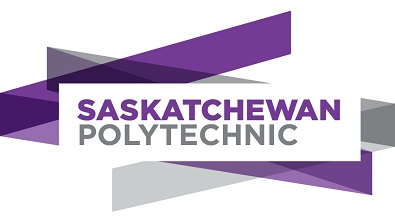A student at the Prince Albert Campus of Saskatchewan Polytechnic has been named one of several Indigenous role models for the school.
Since 2013, Saskatchewan Polytechnic has celebrated and shared success stories through the annual Indigenous role model calendar. In more recent years, these stories have been shared online and on social media.
Brandon Roberts, who is originally from Stanley Mission has been selected as one of this year’s role models. Being chosen has motivated Roberts to try and help others succeed.
“It gives me a great passion and dedication to try and help motivate others to do something further with education or work or something you to look forward to and enjoy doing,” Roberts said. “Just to give that helping hand of being a role model.”
This is Roberts’ second time attending Sask Polytech. He completed the Aboriginal Police Preparation program in 2013 and is now in the Resource and Environmental Law program.
Roberts is enjoying this second journey through Sask Polytech. He said that being a 28-year-old and mature student also gives him perspective.
“When it comes to talking to my peers, talking to students and classmates and all and explain to them struggles in life or struggles through school, it’s going to feel more rewarding at the end when you get to a diploma or a certificate or something that you worked hard for,” Roberts explained. “You explain to them that this hard work that we’re doing—that you’re doing—is just going to make you feel a lot better. It’s going to make it like this means something to you.”
Roberts own role models include his parents and former professional hockey player Jordin Tootoo—the first player of Inuk descent to play in the NHL.
Roberts credited his parents for helping him throughout life, and providing a good example.
“Seeing how hard working they were to put me in sports and making sure I was me going to school just gave me that extra drive to do things that I wanted to do,” he said.
He said that Tootoo was a role model because he was an Indigenous hockey player who left his home to play in the WHL.
“Watching one of his hockey games was really inspirational for me at a young age. I think there must have been about maybe ten years old, not even ten yet. Then watching him make it to the NHL, it just this brought in my mindset of ‘I want to be like him,’” Roberts said.
Not only his parents but all of his relatives acted as role models. He still keeps in close contact with them and learns traditional roots and values.
“Learning from them and how they were raised and taught, it just gave me that extra drive and passion to be as happy and focused in life. All those main direct family members that I had just had the honor of having been around, they always encouraged me to do better,” Roberts said.
Being from Stanley Mission is also formative for Roberts. He said growing up in a small northern community away from the city helped give him the drive he needed to succeed.
Roberts is going to be working as park enforcement officer over the summer. He gets his diploma in April, and plan to start work in May.
Sask Polytech itself has celebrated the many role models over the past decade. Deanna Speidel, Sask Polytech’s Indigenous Strategy director, said it’s important to have role models who can inspire future generations.
“Every year there are so many success stories we could share,” Speidel said. “It can be difficult to choose only 12. Our annual calendar and website are just two examples of how we show people across the province, and across the country, the important role Indigenous students play on our campuses and in our communities.”
Speidel said celebrating Indigenous success is about recognizing the importance of Indigenous peoples throughout Sask Polytech and Saskatchewan.
“We have shared 120 unique and inspiring Indigenous success stories over the years. These stories showcase the resilience and strength of Indigenous people, providing inspiration for others to follow their lead. It also acknowledges the ongoing struggles and challenges faced by Indigenous peoples and the progress we have made,” she explained.
Speidel said Sask. Polytech strives to provide a place of belonging where all students can feel welcomed and inspired. She said sharing Indigenous success stories helps to create a positive and inclusive learning environment on the school’s campuses.
“One of our goals with the calendar is to inspire Indigenous students to continue their education and to inspire and empower future Indigenous leaders,” she explained. “I encourage everyone to take some time to read these stories. You can’t help but feel inspired.”
Guided by the principles of reconciliation and a goal to create long-term positive change, Sask Polytech’s Indigenous student advisors and support team help students with career planning, funding, housing, child care and more. Each Sask Polytech main campus location features an Indigenous students’ centre where students find access to cultural supports, community connections, campus events, elder services and other academic resources.
“Indigenous success stories are the norm at Sask Polytech, not the exception,” Speidel said. “This calendar is just one way we celebrate our students and acknowledge their hard work to achieve their education and career goals.”
For more information on Indigenous student services or to check out the online version of the calendar, visit saskpolytech.ca/rolemodels.
By: Michael Oleksyn, Local Journalism Initiative Reporter, Prince Albert Daily Herald
